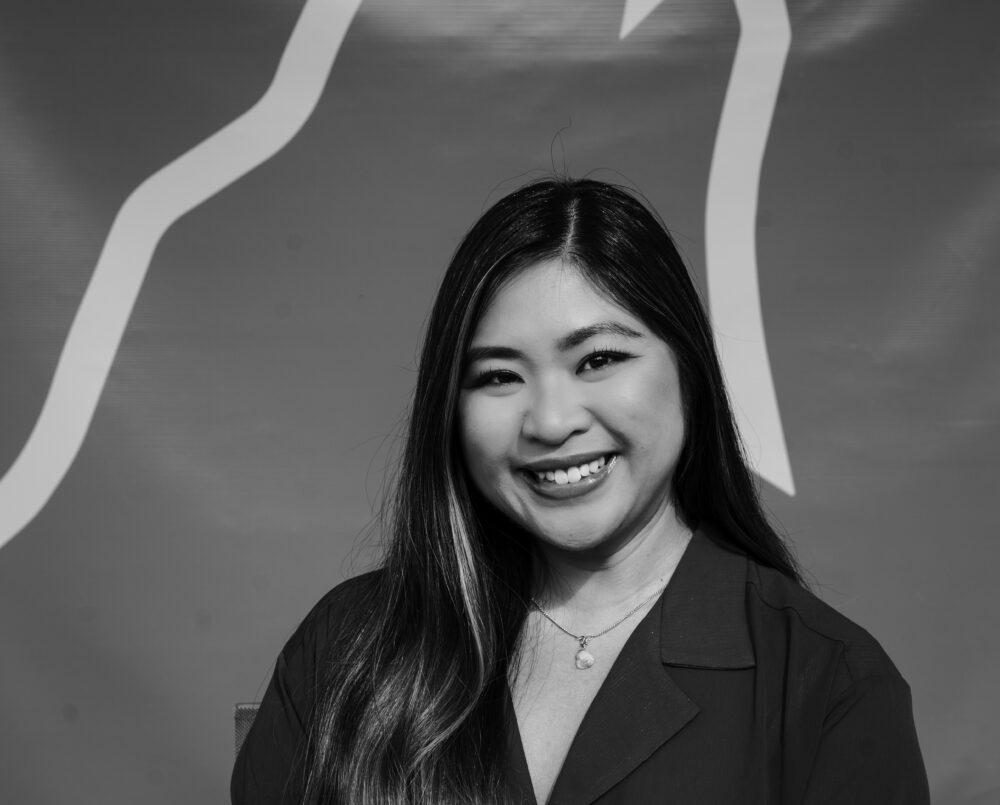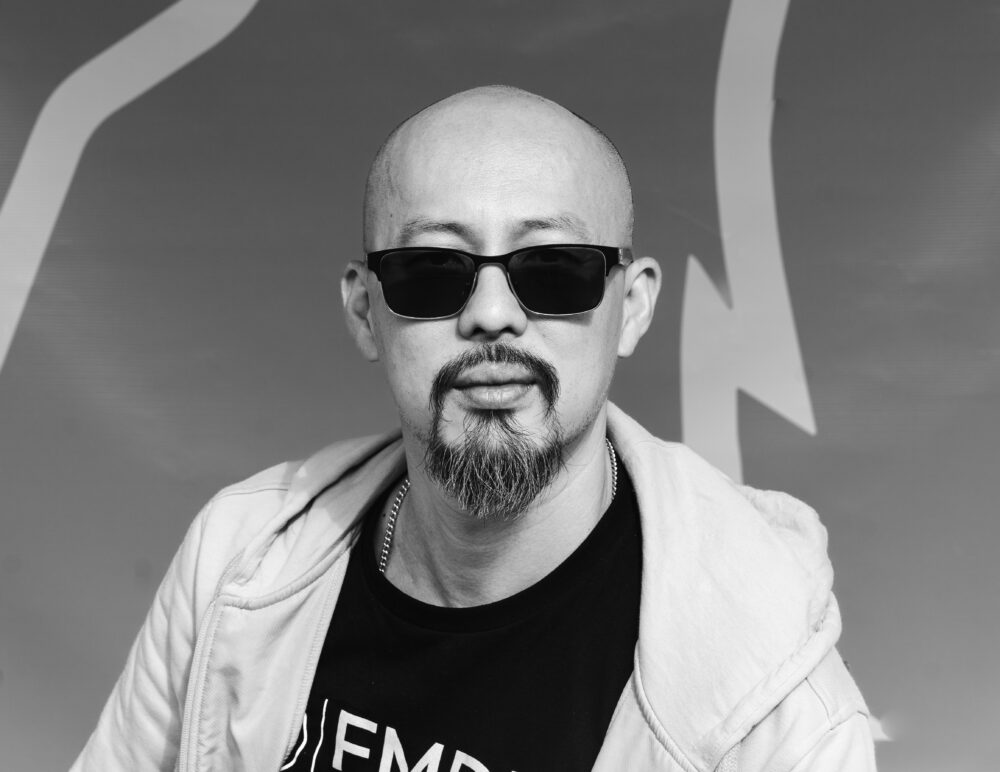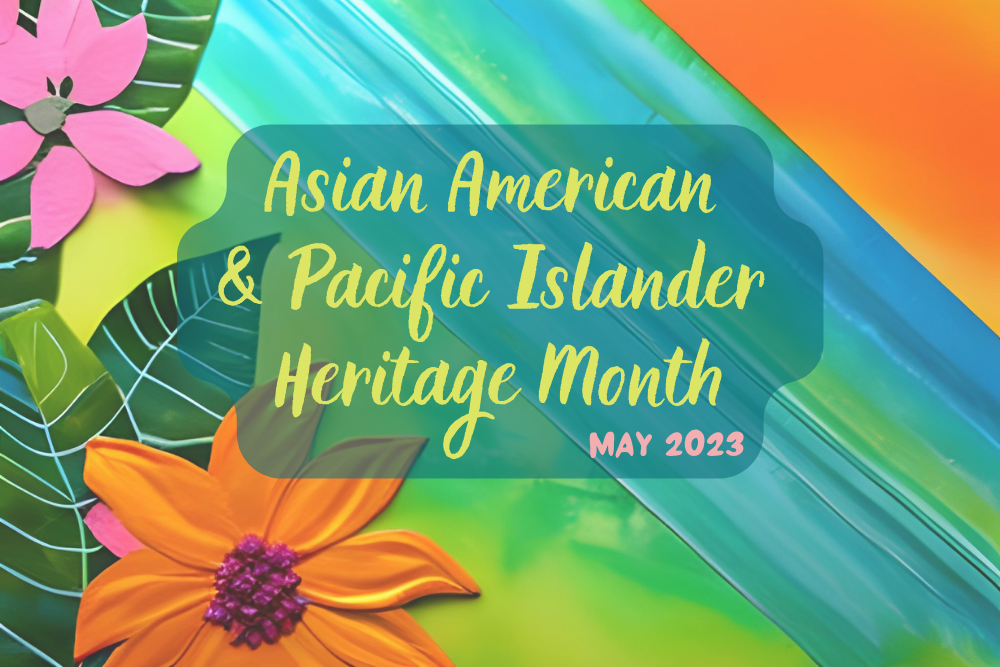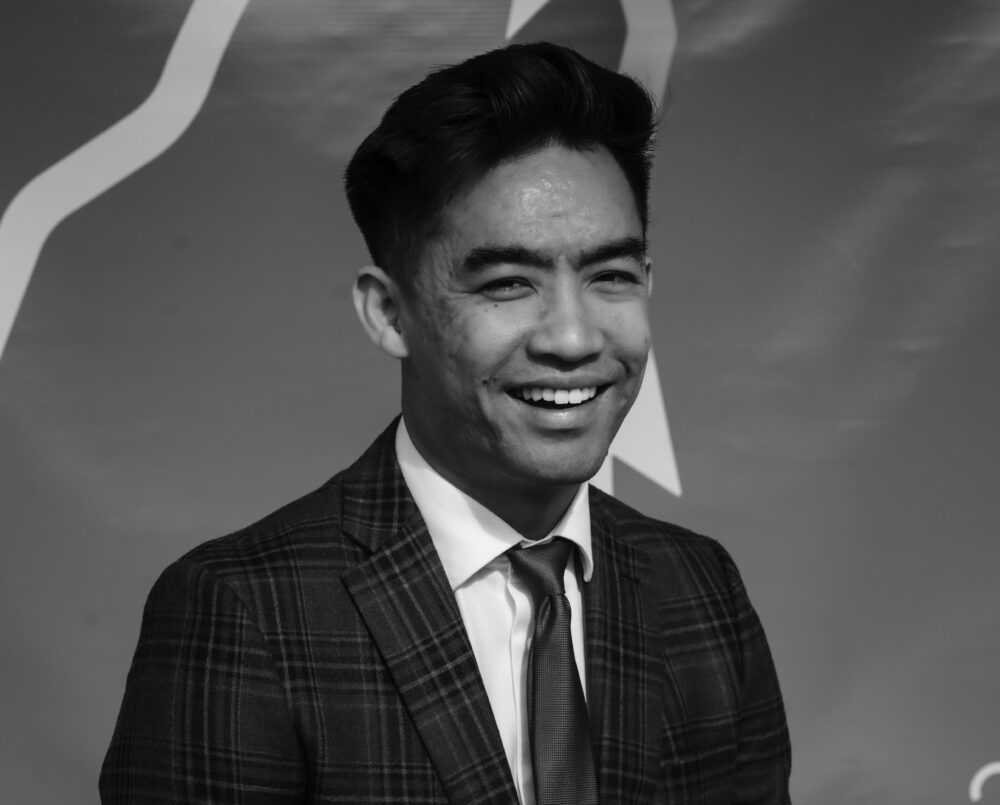Why does recognizing Asian heritage through celebrations in the workplace matter? Our industry is full of diverse, amazing humans, yet the contributions made by certain revolutionaries and innovators are often missing from the acknowledgements.
And boy, that is just a shame that cannot go on. So we’re taking full advantage of Asian American & Pacific Islander (AAPI) Heritage Month to celebrate these amazing cultures as well as recognize FMDM leaders within the AAPI/APIDA community and highlighting their stories.
“When the whole world is silent, even one voice becomes powerful.”
In this article:
- What is AAPI/APIDA?
- Come What May – Why APIDA/AAPI Month?
- World’s Best Bosses ☕ FMDM’s AAPI Leadership on Important Topics
- The Blog May End, but the Conversation Continues
- Further Reading
What is AAPI/APIDA?
The acronym AAPI stands for Asian American and Pacific Islander, encompassing a vibrant and rapidly growing community of 23 million individuals in the United States. This diverse population comprises approximately 50 ethnic groups with ancestral ties to over 40 countries.
The federal government’s definition of AAPI encompasses individuals of Asian, Asian American, or Pacific Islander heritage tracing their origins to countries, states, jurisdictions, and diasporic communities within these geographical regions.
Now, you may wonder about the emergence of the term APIDA alongside AAPI. Since 2010, a newer term, “APIDA,” has gained usage to foster greater inclusivity, particularly towards South Asians. APIDA represents Asian Pacific Islander Desi American, with “Desi” referring to individuals of South Asian identity.
I can’t stress enough the crucial necessity of noting that while AAPI is a singular term, within it are multitudes contained. Just like the concept of “colors,” that isn’t where the story ends–and even a rainbow possesses only a handful of hues when compared with all the possibilities. Everyone has a different life experience and a different relationship with their heritage and culture.
“I think there’s a misconception that all Asian-American experiences are the same. My experiences with my family and the way they wanted me to know my culture are not the same as others.”
BACK TO TOP
Come What May – Why APIDA/AAPI Month?
Similarly to Black History Month, before it was a month, it was a week. Signed into officiality by President Jimmy Carter in 1978, Asian American Pacific Islander Heritage Month (or AAPIHM for short), May serves as a commemorative period, established by Congress in 1992. The selection of May for AAPIHM holds historical significance across the years, most notably May 7 and May 10.
May 7, 1843, marks the arrival of the first Japanese immigrants to the United States, symbolizing the beginnings of Asian American history and presence in the country. This event paved the way for future generations of Asian Americans to contribute to the diverse tapestry of America.
May 10, 1869, also known as Golden Spike Day, commemorates the completion of the first transcontinental railroad in the United States. The construction of this remarkable engineering feat relied heavily on the tireless efforts of Chinese laborers and their immense contributions through unfair and brutal conditions. Their invaluable contributions helped connect the East and West coasts, cutting cross-continental travel time from months to less than a week, facilitating trade, and the growth of the nation.
By designating May as Asian American and Pacific Islander Heritage Month, we can honor these historical moments, learn from them, and acknowledge the rich cultural heritage, achievements, and contributions of the Asian American and Pacific Islander community in shaping the fabric of America.
BACK TO TOP
World’s Best Bosses ☕ FMDM’s AAPI Leadership on Important Topics
This year’s theme is super fitting for this post. Selected by the Federal Asian Pacific American Council (FAPAC), “Advancing Leaders Through Opportunity” is on the nose (in a good way for us) and builds on a leadership advancement theme series that began in 2021.
So for us at Fullmoon, May serves as a time for celebration, reflection, and the amplification of diverse voices that not only have played an integral role in the nation’s progress, but also to those who we get to work alongside on the daily. Hear from three leaders who have graciously shared their thoughts on family, work, and life as members of the AAPI community experiencing our country and industry.
“The power of visibility can never be underestimated.”
― Margaret Cho, actress & comedian
I gained a lot of respect and regard from collaborating with these impressive individuals, and learned a whole heck of a lot. I can’t wait for you to as well!
Christiana Chee, Customer Service Manager 
How do you identify within the Asian American/Asian Pacific Islander Desi American community?
Chinese-American
What does celebrating AAPI Heritage Month mean to you?
Observing AAPI Heritage Month has helped me heal my inner child and empowers her to embrace the individuality she used to feel ashamed of. Growing up, I was either the only Asian American in the class or one of few. I felt self-conscious that my eyes were smaller and looked different than theirs.
As I entered adulthood, I gained a deeper appreciation for my cultural roots and fully embraced my Chinese-American identity. It brings me great pride to be a member of the AAPI community and I am grateful for it.
What are some meaningful cultural traditions for your families? Which, if any, are particularly important to you?
Gathering together for communal meals was a significant tradition in my family. The purpose was not only to nourish ourselves but also to bond as a family. Our meals were always served “family-style,” where everyone shared and enjoyed all the dishes.
How do you, or do you plan to, pass down your culture and customs to your children/others?
In the future, I intend to practice the tradition of sharing meals as I strongly believe that food is a powerful tool for bringing people together and building and strengthening relationships.
How did you find your way to Fullmoon? Or, how did Fullmoon come to find you?
I found Fullmoon through an ex-coworker who became my co-worker again.
Anti-Asian violence has been on the rise throughout the U.S., particularly during the pandemic. If you’re comfortable, can you share your feelings about these issues?
It is heartbreaking to see the rise of Asian hate crimes across the United States. Throughout the pandemic, every time there was a segment about an Asian hate crime, my heart sank because all I could see were my grandparents’ and parents’ faces. I felt uneasy going out not only because I feared catching COVID, but also feared that someone might try to attack me simply because I was Chinese-American.
There were moments when friends and acquaintances of mine didn’t understand why there was a rise in Asian hate crimes, and even ignorantly believed that they never happened. I truly hope that racism as a whole is eradicated from the world and that people can just learn to co-exist peacefully.
Do you have any advice for young AAPI professionals starting out in the workforce?
It’s crucial to trust your gut and go with your own instincts when embarking on your career journey. While others may have their own ideas of what your path should look like, it’s important to stay true to yourself and follow the direction that feels right for you. Don’t be afraid to explore different professions as each one will offer valuable lessons that will propel you forward in your professional growth.
Remember that your career is a journey, and it’s up to you to chart your own course to success.
BACK TO TOP
Loc Le, VP of Strategy & Operations
How do you identify within the Asian American/Asian Pacific Islander Desi American community?
Vietnamese/Chinese
What does celebrating AAPI Heritage Month mean to you?
This means there is an intentional time and place that will highlight all the different impacts the AAPI community is making impact not just for the AAPI community but for all people of color. It means I get to learn about all the awesome things my fellow like minded industry shakers are doing to preserve heritage and expand possibilities.
How has your cultural heritage shaped the person you are today?
Growing up as a more traditional, conservative AAPI person and then being exposed in my 20’s to a more worldly and modern way of viewing life, money, people, love and time has made me a lot more open minded to all views, regardless of age, gender, or ethnic background.
I hold the strong family values from my AAPI heritage like keeping my parents with me under one roof for as long as I can, taking care of their retirement and considering them when making major family decisions (including what life partner I may choose).
What brings you particular joy about your heritage and culture, large or small?
Food. I am so so proud of the food. I’ve seen it both as fun home grown soul food to Michelin star rated depths.
Often, food has a huge tie in culture. What is your favorite traditional food? What connections do you associate with that food?
My fav traditional Vietnamese food is Cơm Tấm (Vietnamese Broken Rice). It is such an amazing comfort food and reminds me of our family’s humble beginnings. It’s a dish that was only made and enjoyed by the poor. When you sift rice and sell the grains that are whole, the broken ugly pieces fall to the bottom. Those can be sometimes had for free and purchased at an extremely low price for the poor farmers working the fields. You would then put whatever pickled veggies or meat you may have been able to get your hands on to add to the dish, then you top it all off with fish sauce.
We had a lot of this growing up. My mother came to the US and raised my sister and I alone on $10,000 USD a year. It’s an absolute feat.
My fav Chinese food is Siu Yuk (Crispy Pork Belly). It is amazing with just rice, noodles, or even in a sandwich. This was a real treat growing up and we only got it when we had good months. I am very very lucky to have grown up with my mother making sure to keep both cultures in tac for us.
There is a wealth of compelling Asian narratives in media. What are some works that have resonated with you?
Mulan is #1. Growing up I never thought of or wondered why no one looked like us in mainstream media or was truly affected when I did see representation. I didn’t really understand the difference or impact till I was an adult.
As an adult though… There are quite a few. First one that comes to mind is the Hangover (haha) and the more recent Crazy Rich Asians, Always Be My Maybe, and Beef. There are a few AAPI designers I am also absolutely in love with but that is a story for a different time.
What are some meaningful cultural traditions for your families? Which, if any, are particularly important to you?
Hands down, Lunar New Year. My goodness. This has gotten bigger and bigger for us every year and post pandemic I have really made strong efforts to make sure the whole family participates. I don’t quite subscribe to the Buddhist traditions around this holiday but I still encourage my family to go to the temples and learn/participate to keep the traditions alive.
How do you, or do you plan to, pass down your culture and customs to your children/others?
We plan to not speak any English till they are 1 year or so from school. Other than that we are pretty open to them adopting anything else they would like to. We are pretty open minded when it comes to the cultural stuff but we do believe in passing down some of the more historic family values. Things like how to respect elders, never showing up to someone’s home the first time empty handed.
How did you find your way to Fullmoon? Or, how did Fullmoon come to find you?
I was burnt out and was never going to work for anyone ever again in the traditional sense. I started an agency and we were well on my way when I got a call from Derek on a Wednesday afternoon while enjoying a vanilla ice cream cone in my car on my way home from Costco. You know. Typical LA, fUnemployed stuff. He found out that I was no longer at my previous employer and under the suggestion of one of his team members decided to reach out and offer me a job. I did NOT make it easy for him. We negotiated for 4 weeks and he did not let up.
Right place, right time. I’m a lucky guy.
Do you feel like your AAPI background influences the way you approach your position, business relationships, or work goals? If so, how?
Yes, yes and yes. I can share all my secrets….
How do you feel your background supports your leadership style at Fullmoon? What traditions, values or mindsets does your culture uphold that influence your approach?
I definitely put people first. I always have and it’s really helped me get to where I am today. The leaders I had did the same for me. I’m just paying forward but now I’m able to slowly do it at scale.
There’s a lot of wisdom around treating others like you would want them to treat you. But I truly believe in treating them even better. My years in Chinese churches, Asian boy scout troops and growing up as one of the younger cousins in my family, I’ve seen what it takes and how much someone may need to feel happy and impactful. I feel extremely lucky to have grown up AAPI and wouldn’t trade it for anything else in the world.
Anti-Asian violence has been on the rise throughout the U.S., particularly during the pandemic. If you’re comfortable, can you share your feelings about these issues?
I think it sucks. I think any kind of ANTI violence sucks. Use your words not your fists. There’s a time and place but hate crimes are not it. If I learned anything from starting wars is that if the empire keeps pushing they always eventually lose the support. Rebels win. Eventually and always.
Stop hurting each other and start working with each other to make real change. Now and for our children.
What would you like to see happen as a part of the healing process as these racial biases are addressed?
Stop. Stop hitting each other. Start reading, learning, exposing. That’s how the ignorant will become less violent.
If you could tell the whole world one thing about your experience as an AAPI, what would it be?
Thank you. To all the pioneers. People of color or not. all that help us get to where we are today as a species. Long way to go but it’s been a hell of a ride so far.
Do you have any advice for young AAPI professionals starting out in the workforce?
Yes! Be yourself. Don’t be scared. If you are, move. Find another place. There are an insane amount of opportunities out there. If you can find them, reach out for help.
BACK TO TOP
Derek Chew, FMDM Founder & CEO
 How do you identify within the Asian American/Asian Pacific Islander Desi American community?
How do you identify within the Asian American/Asian Pacific Islander Desi American community?
Chinese
How has your cultural heritage shaped the person you are today?
Running a business is tough, it takes sacrifices and commitment to see things through ups and downs, especially when things are difficult. Fortunately, I do my best work when faced with challenges and get fired up to find solutions. In my youth, I was extremely competitive and I would feel broken if I did not outdo my competition. Looking back at my younger self, my point of view was entirely skewed based on what my culture expected of me.
I wasted so much time focusing on others and chased “ghosts” – but that was when I was young and dumb (hopefully smarter in my older years). In running FMDM, I realize that my time and energy should be dedicated to making our team better, forging stronger client relationships, becoming the best husband and father, and doing what I love the most.
Cultural heritage teaches us what to do as much as what not to do, in the best sense possible.
Often, food has a huge tie in culture. What is your favorite traditional food? What connections do you associate with that food?
I’m not sure if this is traditional, but I love hotpot. In my country of Malaysia, we refer to that as steamboat. This is where friends and family gather for festivities and enjoy eating together.
Maybe a reason why I love the modern-day hotpot so much is because it reminds me of family-time and being able to spend time with my wife and children.
In fact, we took a few pack members to a hotpot for the first time a while back and everyone enjoyed the experience!
How did you find your way to Fullmoon? Or, how did Fullmoon come to find you?
The “Full Moon” did find me in some sense. You see, for over 23 years I worked as an in-house digital marketer. Experiences during the past 2 decades taught me many things, but the most valuable lesson was relationship-building. Forging healthy relationships was an element that stood out to me in all my years of working with and for different companies of all sizes. No matter how large or small a business is, the crux of success is based on strong relationships built on core principles of trust, loyalty, and excellence.
As the years went by, I felt less satisfied with my career path. I felt like a cog in the wheel and going through the motions of the proverbial career. It was exhausting and unrewarding that eventually led to burnout. That was not a good feeling. I love marketing, and this trajectory was going to take the fun out of marketing for me.
Since loyalty is so important to me, I tried to justify working for companies (probably longer than I should have), but I came to a fork on the road and had to make a choice.
My wife and I agreed that doing something on our own was going to be the best and scariest thing we’ll do — I do love rollercoasters, so I was all in for the ride. We did something about it in August of 2017. We were sitting in the backyard trying to figure out what to name this agency. I defaulted to the usual “digital-ish” names but reconsidered — it was all too cliché. For 30 minutes, we came up with all sorts of business names and just as we were about to give up for the night, my wife looked up to the clear sky and low and behold — a FULL MOON!
That evening, FullMoon was born and we were ready to take on any challenges and never look back.
Anti-Asian violence has been on the rise throughout the U.S., particularly during the pandemic. If you’re comfortable, can you share your feelings about these issues?
Violence is just wrong regardless of race or religion. The fact that racial issues are used as a platform to spark violence seems hypocritical to me. The groups that promote violence happen to similar groups that cry injustice.
The news is plagued with a rise in violence every day across the country. While I should be focusing on the Anti-Asian issue here, it is clear the rise in violence throughout the U.S. is rampant.
There will always be groups who don’t like another group for whatever reason. As a Chinese guy living in the U.S. for the past 20+ years, it is clear to me there are biases towards every race — some people just express it more explicitly than others.
As a technophile, I see how so-called smart devices and social platforms are enabling hate to spread quicker at the speed of light (or pixels). Just like anything humans have access to — we can either use it for good and benefit the lives of humankind, or abuse it for destruction. We can’t tell another human being what to do — but if more people decide to show how things can be better, I think we as a society can gradually become better and live more peacefully with each other.
What would you like to see happen as a part of the healing process as these racial biases are addressed?
Let’s be honest here, can it really heal? If we look at society today, are we better than society was 10 or 20 years ago? Has racial biases gotten better or worse? I think it’s par for the course; the difference is that social media has made information more accessible and portable.
I’m a realist. There are so many external factors that can sabotage any healing process. There are as many wealthy Asians as they are Blacks, Hispanics, and Whites. In my opinion, race does not determine how successful an individual can be. It’s the individual who can decide how they choose to travel the road.
News affects perception. Here’s an idea. How about publishing more happy news in the media platforms? The things that drive readership and impressions are usually things around depressing issues like gun violence, riots, etc. Sadly, those types of topics are the ones that drive revenue for media outlets. So if we want to heal, we need to change peoples’ perspective on society, and to enable that change, we must change the information they are receiving on their screens.
Do you have any advice for young AAPI professionals starting out in the workforce?
Don’t use your race as a crutch. Use it to your advantage because of the multi-layered experiences you have most likely gone through in your community.
BACK TO TOP
The Blog May End, but the Conversation Continues
Wow. These powerful words are one place to start the conversation.
If you’d like to better understand the racial grouping in all of its complexity, it’s crucial to know what “AAPI” means in a wider cultural sense. It’s also important to note the reasons why some people who are designated as AAPI by the U.S. Census don’t choose to identify as AAPI themselves. (Some Pacific Islander community leaders take issue with the term AAPI, for example.)
“When we say ‘Asian American’ we are talking about so much more than can be fit in a single stereotype.”
Continuing to have these conversations is vital to keeping very distinct and vivacious cultures and backgrounds honored. While it may be easier to put a label on and walk away from a neatly wrapped up box, it is beneath us, our humanity, and where we are in social evolution to simplify such complex and rich matters and people. It is important to not lump these very diverse groups together, creating a culturally flattening effect, leading to erasure of individual ethnic groups, languages, and contemporary political issues.
Invite your AA & PI teammates, friends, and neighbors to share their own stories, insights, and experiences throughout the month of May (and the year) to keep it going!
How does your team observe this important time of year? Share with us! We’d love to add to our party planning box. 🥳



